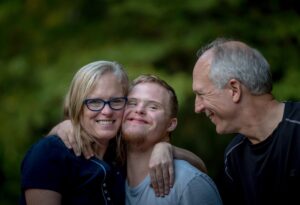
In which state are maternity protection policies around the world? How many days are entitled to dads when their child is born? The International Labour Organization (ILO) has gathered data to help answer these questions. And has recently announced two new digital tools: the Global Care Policy Portal and the Care Policy Investment Simulator.
As ILO describes, its open-access portal is “a knowledge hub on legal and statistical indicators on national care leave policies and services.” While the Investment Simulator, free to use previous registration, “calculates the investment requirements in 4 care policy areas and the related employment and gender equality benefits for 182 countries.”
Both instruments, useful to better grab the worldwide situation, are easily accessible sources of information, thanks to powerful visual communication qualities. The Global Care Portal, for example, offers a clear and immediate rendering of the conditions registered worldwide displayed per topic, data, and area. On the one hand, it deepens the available knowledge on maternity, paternity and parental leave; on the other, it sheds light on care leave schemes and non-discrimination policies, such as childcare and long-term care services.
Since those two tools put together visualized information about the most crucial issues still keeping women out of the labour market, they help better understand where countries stand regarding gender equality. To put it in plain English, most areas for which the data are (made) available are central to building more equal societies.
Caregiving leaves
The more we have grown aware of the breaks in careers still holding most women behind, the more we realize the different hues contributing to keeping the status quo. From limited parental leave to non-existent or inaccessible childcare, from various forms of discrimination for carers who take leaves to assist their children (or older parents or sick relatives), working parents, especially, are paying a high price. And women, who are, in most instances, the first caregivers, have it worse.
Single indicators alone can describe different situations up to a point. Still, it is illuminating to learn from ILO’s portal, for example, that Georgia, where in 2021 there is no statutory paternity or parental leave, is the country among the 182 considered with the longest statutory maternity leave (104 weeks). Followed by Bulgaria (58), Australia, the UK and Northern Ireland, Bosnia Herzegovina and Albania (52). Or to realize that out of 178 countries, just 21 grant a universal childcare system for kids under two years of age. And again that 63 countries provide a universal pre-primary education (from 3 years old) as a statutory right. Or that only 2 in 10 adults globally live in countries that offer a lawful right to long-term care leave (55 out 179 for which data are collected).
The ILO Care Policy Simulator, instead, “helps building tailor-made care policy investment packages of 4 care policies”. After choosing the area(s) of interest, from childcare paid leaves to breastfeeding breaks, the tool creates downloadable results obtained by comparing 180 statistical indicators. From public investment requirements to the reduction in gender earning gaps, it is possible to compare multiple scenarios for one country or a combination of different ones.
***
Alley Oop’s newsletter
Every Friday morning Alley Oop arrives in your inbox with news and stories. To sign up, click here.
If you want to write to or contact Alley Oop’s editorial team, you can email us at alleyoop@ilsole24ore.com.